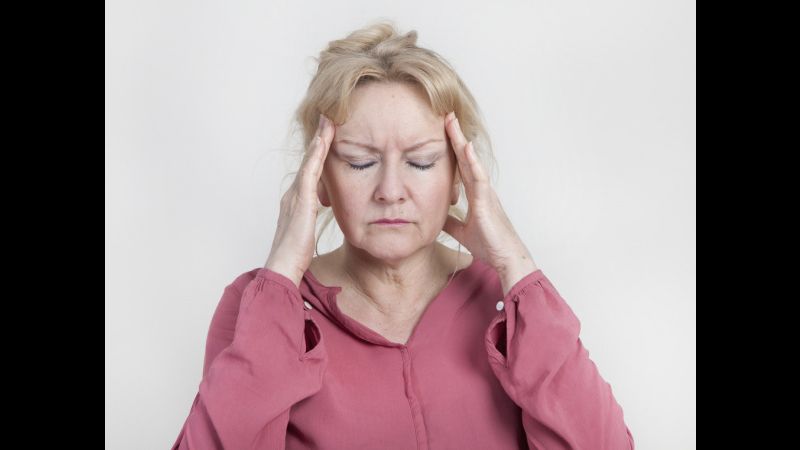Listening to your body is vital to understanding what it needs and figuring out the best ways to remain healthy. So what is your body saying about your migraines? Sure there are always causes for headaches in women, but a new study detailed on RedOrbit.com confirms that menopause may be making your migraines worse.
The Study
Dr. Vincent Martin, co-director of the headache and Facial Pain program found that headaches in women actually increased by up to 60% during both menopausal and premenopausal time periods.
The researchers used a mail questionnaire to survey over 3,600 women between the ages of 35 and 65. The questions covered menopausal status, whether or not they suffered from migraines, and if so, the frequency of migraines. Women reporting to have experienced 10 or more headache days in a month were identified as having high frequency headaches.
The results showed that the women were evenly split between premenopausal, perimenopausal and postmenopausal. Frequent headaches were reported by 8% of the premenopausal group, 12% of the perimenopausal group, and 12%of the menopausal group. Proving that perimenopausal and menopausal women experience migraines, perhaps as a symptom of menopause.
How Long Will the Headaches Last?
According to the article, these symptoms of menopause can last up until the age of fifty-one. Many symptoms begin in a woman’s early forties and continue for several years. The transition known as perimenopause is the root of these frustrating and painful symptoms.
Perimenopause occurs when the female body begins to transition from normal menstruation to irregular periods caused by the decrease in estrogen levels. Ultimately, this leads to the ceasing of menopause when women can no longer bare children.
There is no set time range for doctors to say how long these symptoms will last, but that they can last for several years. Each female body differs from another; some may suffer these symptoms for a short period of time while others may experience them longer.
Managing the Symptoms
There is no way to stop menopause that will not have harmful effects on your body, but there are ways to manage the aches, pains, and mood swings one can suffer from during this time.
Talk to your doctor if you have been experiencing migraines throughout perimenopause and menopause. It is important to consider the options when suffering from pain or even adjust current migraine medicines if you are on them.
Another solution is discussing the possibility of hormone treatment with your doctor. Since a cause of menopausal migraines is a decrease in hormone levels, hormone replacement therapy may be a solution for you.
Be sure to always speak to your doctor first about the pros and cons of procedures with your body as everyone is different and may experience different results.

